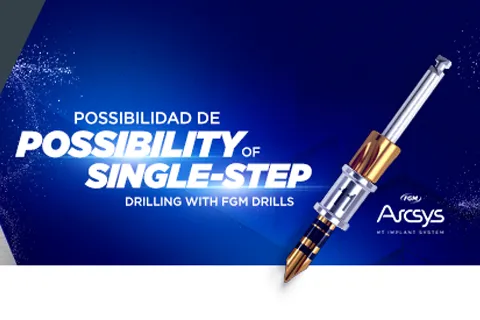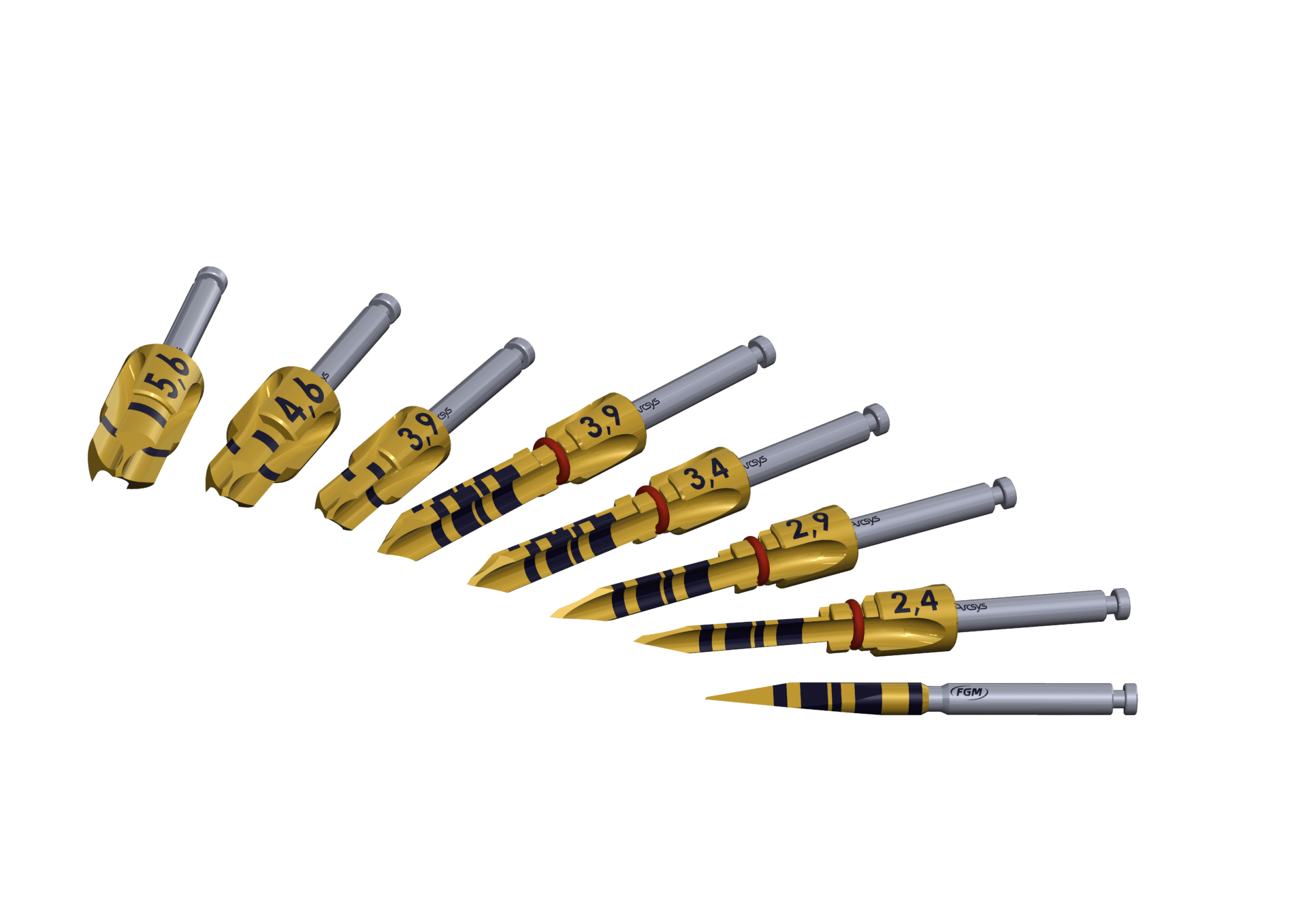

FGM Drills have innovative design and optimize the surgical stage.
With cylindrical shape, they have active tip with high cutting efficiency and excellent stability. Its parallel body contains straight flutes that help in irrigation and bone tissue collection.
They are used for bone perforation prior to implant placement. Available in different diameters, so that the milling is in accordance with the implant dimensions proposed in the planning.
Indicated for use in both scaling and single drilling techniques.

Active Tip:
Acts like an initial drill, providing stability from start to finish.
Stability and safety:
Cylindrical body that "does not pull", allowing the placement of drill stops.
Efficiency:
It allows perforation in one-step. Recommended perforation rotation from: 600 - 1200 rpm.
Straight flutes:
Irrigation through the whole extension of the drill and capacity to collect bone tissue.
Material:
Prime steel coated with TiN (titanium nitride), which provides greater surface hardness, lower friction and greater durability.
Innovative geometry:
Self-controlled throughout the surgical preparation, with the optimization of surgery time.
The lifespan of FGM drills is approximately 30 perforations, as indicated in our manuals, as there are numerous variables, such as bone density found in patients.
Yes, conducted by CERMAT - UFSC, and it is in the Technical Manual of the System.
The Arcsys System dril lstops do not impair irrigation as FGM Drills have a unique design with deep side grooves that precede the “stop” of the drill stops and thus allow fluid to flow beneath the device and flow throughout its extension.
As with all materials, autoclave cycling shortens the life cycle, but the silicone provided in the Arcsys System wrenches is of excellent quality and should remain stable following the life cycle of the FGM Drills.
FGM Drills are made of a noble stainless steel, suitable for use in surgical instruments, according to American standard ASTM F899, which has high mechanical resistance combined with corrosion resistance, as well as surface treatment of titanium nitride (TiN).
The main factors that allow drilling in one step are: the geometry of the FGM Drills, containing side grooves that have high depth and reduce the metal thickness, providing quick heat exchange with the coolant; the guide tip that stabilizes the instrument's drilling direction; and TiN (titanium nitride) coating, which reduces the coefficient of friction between the FGM drill and bone tissue.
No. As long as the surgeon performs the instrumentation correctly following the established protocols for drilling, correct RPM, irrigation, intermittent milling, etc., there will be no problem of tissue necrosis. It is also important to note that tool maintenance should be careful to maintain proper cutting throughout its life, and to be replaced when it expires.

We provide direct links to publications from major scientific portals containing studies conducted with our products.

Componentes Arcsys, Vezza e Fluxo Digital até 60% OFF, promoções em Brocas, kit cirúrgicos e muito mais.